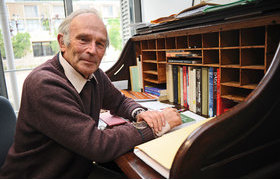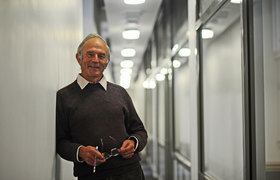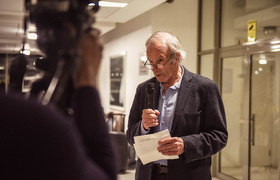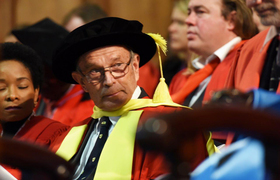Tribute to Francis Wilson (and Dudley Horner)
29 April 2022 | Tribute Debbie Budlender. Photo UCT News. Read time 4 min.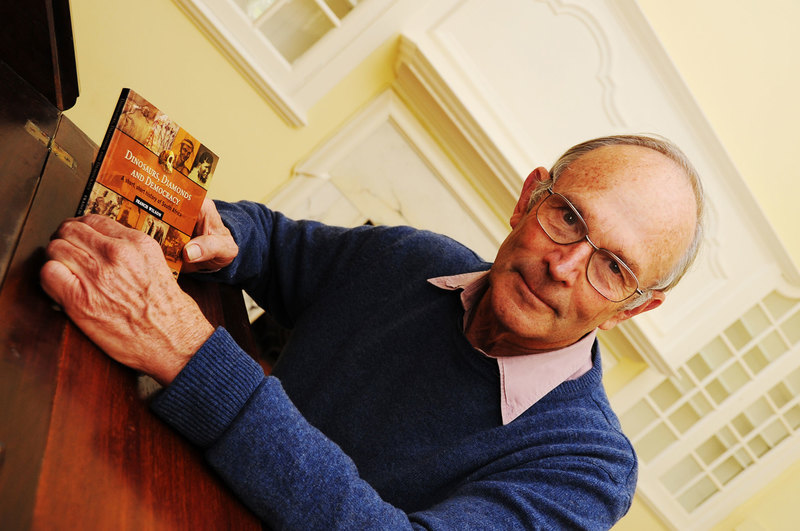
I was doing my undergraduate degree, majoring in Economics, when Francis “imported” Dudley Horner from then-Natal and together they established SALDRU. The next year, when I was doing honours, Francis was the supervisor of my mini thesis with Dudley as co-supervisor. Perhaps it was the influence of his anthropologist parents that encouraged Francis to agree to a mini-thesis topic that was as much history, politics and anthropology as economics. I heard murmurs from others that what I was doing was “not really economics”.
But as important as the academic angle for me, was the source of information, knowledge and support that SALDRU provided for those of us involved in Wages Commission, the labour wing of the National Union of South African Students (NUSAS). SALDRU quickly built up documentary resources that supplemented the wealth of knowledge in both Francis and Dudley’s heads. And we were eager users of these resources.
Francis was also the go-to person whenever we, as student activists, needed someone to speak at an event. One could always rely on Francis to make himself available and to say something clear and to the point, even at short notice. What was especially impressive to me is that he did this using a tiny square of paper, presumably with a few prompt words on it, as his only support.
“The sense of common purpose that Francis and Dudley inspired resulted in the development of strong bonds between these “odd” people.”
The Security Branch of the time were less impressed with SALDRU’s influence. My five-year banning order in late November explicitly prohibited my participating in SALDRU’s activities in any way – a provision not included in other people’s orders. Perhaps it was this that prompted SALDRU to offer me a job immediately after my banning order was lifted in 1981. I remember a strong feeling of “coming home” as I walked up the steps in the Leslie Building to SALDRU’s offices.
It was during this time in the 1980s that SALDRU was implementing what, in retrospect, could be seen as a form of affirmative action. Some of us used to joke at the time that there had to be something “wrong” with someone if they wanted to be employed at SALDRU – whether in terms of race, sexual orientation, politics or something else. The sense of common purpose that Francis and Dudley inspired resulted in the development of strong bonds between these “odd” people.
SALDRU was tiny in the mid-1970s. My years at SALDRU in the 1980s saw rapid growth as it included the preparatory period for and actual Second Carnegie Poverty Study. I am still astonished at Francis’s vision and energy (and fundraising ability) in putting together this massive undertaking – and enthusing a very large number of people to contribute in different ways. Francis was not one to be frightened off by large undertakings.
My formal attachment to SALDRU ended in 1984, although not my connection to, interest in, and benefit from SALDRU and its work. Subsequently I continued to encounter Francis in our personal lives as well as in UCT-related activities. However, it is for what I gained in these earlier years that I remain indebted to Francis and SALDRU.
 This work is licensed under a Creative Commons Attribution-NoDerivatives 4.0 International License.
This work is licensed under a Creative Commons Attribution-NoDerivatives 4.0 International License.
Please view the republishing articles page for more information.







